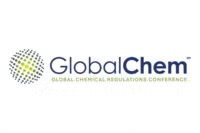WASHINGTON, D.C. (March 19, 2024) – Today, the American Chemistry Council’s (ACC) Chlorine Panel issued the following statement on the U.S. Environmental Protection Agency’s (EPA) asbestos part 1 risk management rule under the Toxic Substances Control Act (TSCA):
“Chrysotile asbestos diaphragm technology is being used safely by the chlor-alkali industry. This conclusion is supported by the data submitted to EPA by industry as part of the 2020 risk evaluation. Industry also provided EPA with data and information outlining the need for a reasonable transition timeline, taking into account the time needed for any large capital project, the raw metal supply disruptions that impact the electrolyzer market and other supply chain challenges, and regulatory approval cycles, among other factors.
“ACC’s Chlorine Panel is encouraged that EPA recognizes the critical need for chlorine, including to disinfect the nation’s drinking water supply, and potential challenges for the supply chain during the transition period. Continued safe production is necessary in order to supply chlorine used in numerous lifesaving and life-enhancing applications such as water treatment to provide safe drinking water, over-the-counter and prescription pharmaceuticals, disinfectants and crop protectants, and advanced technologies like semiconductors.
“EPA’s inclusion of an incremental phase-out period over 5, 8, and 12 years and EPA’s changes addressing gaskets and seals minimizing unnecessary service disruptions at plants included in the final rule are positive changes and examples of the Agency’s consideration of industry comments. However, industry remains concerned about the Agency’s approach to developing existing chemical exposure limits, or ECELs, for occupational settings and will continue to advocate for the use of the best available science and the weight of the scientific evidence in deriving ECEL values.
“As the first TSCA Risk Management Rule issued after passage of the Frank R. Lautenberg Chemical Safety for the 21st Century Act in 2016, ACC is reviewing the final rule carefully. ACC and industry will continue to advocate for science and solution-based risk management proposals, while also ensuring chemical safety, given the significant impact on the national economy and critical infrastructure that could result from overly conservative rules.”




